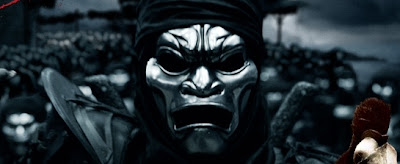Bevin Chu
September 30, 2007

The "Goddess of Democracy" has feet of clay
Democracy, we are told, is hallowed.
Democracy, we are told, is sacred.
Democracy, we are told, must not be betrayed by populism (rule by the mob), by plutocracy (rule by the rich), or by oligarchy (rule by the few).
In fact, democracy is not hallowed.
In fact, democracy is not sacred.
In fact, democracy has never been "in danger of being betrayed" by populism, by plutocracy, or by oligarchy.
Democracy has never been in danger of being betrayed by populism, by plutocracy, or by oligarchy, because democracy is populism, plutocracy, and oligarchy.
Populism, plutocracy, and oligarchy can never "betray democracy," because populism, plutocracy, and oligarchy is the fulfillment of democracy.
To paraphrase the Army recruiting slogan, populism, plutocracy, and oligarchy is democracy "being all that it can be."

The moth in another guise

The caterpillar in another guise
Populism, plutocracy, and oligarchy is merely the moth/caterpillar. Populism, plutocracy, and oligarchy is merely democracy at a later stage of development.
Democracy is the merely the caterpillar/moth. Democracy is merely populism, plutocracy, and oligarchy at an earlier stage of development.
The essence of democracy is the violation of the natural rights and political liberty of the individual by the collective.
"Democracy," as Benjamin Franklin astutely noted, "is two wolves and a lamb voting on what to have for lunch."
This brutal rape of the individual is given a veneer of moral legitimacy by pro forma rituals such as voting and term limits, none of which alter the fundamental immorality at democracy's core.
Going through such ritual motions as voting merely adds a layer of hypocritical pretense to the process.
The ugly reality is that the collective has imposed its will upon the individual by means of brute force, the same way that a rapist imposes his will upon his victim.
I'm stronger than you. Therefore you can either submit, or be physically overpowered or even murdered.
The only difference is that society has "normalized" democracy's systematic rape of the individual by the Leviathan State.
It has not "normalized" the rape of women by men. Or at least not as openly.

Ted Bundy (2002, directed by Matthew Bright, written by Stephen Johnston and Matthew Bright)

Big Brother is Watching You, from George Orwell's dystopian novel "1984"
Democracy is not "the end of history as such."
Democracy is not "the end point of mankind's ideological evolution."
Democracy is not "the universalization of Western liberal democracy as the final form of human government," political scientist Frances Fukuyama and his fellow Neoconmen to the contrary notwithstanding.
Democracy is merely cannibalism with better table manners. Democracy is merely cannibals learning to use the proper knife or fork as they devour their fellow man.

"Saturn devouring his children", Francisco de Goya

Democracy is merely cannibalism with the proper knife and fork
Why are we surprised that democracy has "degenerated" into populism, plutocracy, and oligarchy?
Democracy is destined to morph into populism, plutocracy, and oligarchy. Just as the caterpillar is destined to morph into the moth.
Shouldn't we be more astonished if democracy failed to "degenerate," i.e., metamorphose into populism, plutocracy, and oligarchy?




















